“It all began after a single trip to Egypt, which helped create Coptic Orphans. Imagine if every single Egyptian living abroad came to Egypt and was touched the way I was touched?” Nermien Riad, founder of Coptic Orphans, tells Egyptian Streets.
If there was ever a voice in the world of philanthropy and development throbbing with compassion, devotion to God, justice and love – all at the same time, and all with the same vigor – it was Nermien Riad’s Coptic Orphans, an international Christian development organization that aims to improve the lives of vulnerable children in Egypt through education.
It was granted the United Nations Consultative Status, which is the highest status granted by the UN to non-governmental organizations, allowing Coptic Orphans to participate in the United Nations’ framework.
In its statement on the NGO, the United Nations highlighted that “diasporic communities bridge the gap between local and global markets, incentivizing pathways for entrepreneurship and transforming the investment climate in home countries.”
On top of serving as a bridge between local and diasporic populations, what also distinguishes Coptic Orphans’ work is that it operates as an organ rather than merely an organization. The blood of its vessels are enriched through a beating heart that reverberates Riad and her team’s faith and love for God. Each project, or each heartbeat, is an expression of their faith, and their commitment to serve religiously.
Her story carries the wind of her generation and generations before her that believed that national belonging goes beyond just knowing the language and culture, but is also about responsibility and service. Today, she is moving the direction of this wind towards current and future generations, enveloping their spirit with a deeper understanding of what it means to be Egyptian.
Even after moving to the United States, there was a rolling tape at the back of her mind that always took her back to her childhood in Egypt, where she vividly remembers fleeting moments of her at Alexandria’s beach with her family, and have always wanted to return somehow to relive those memories.
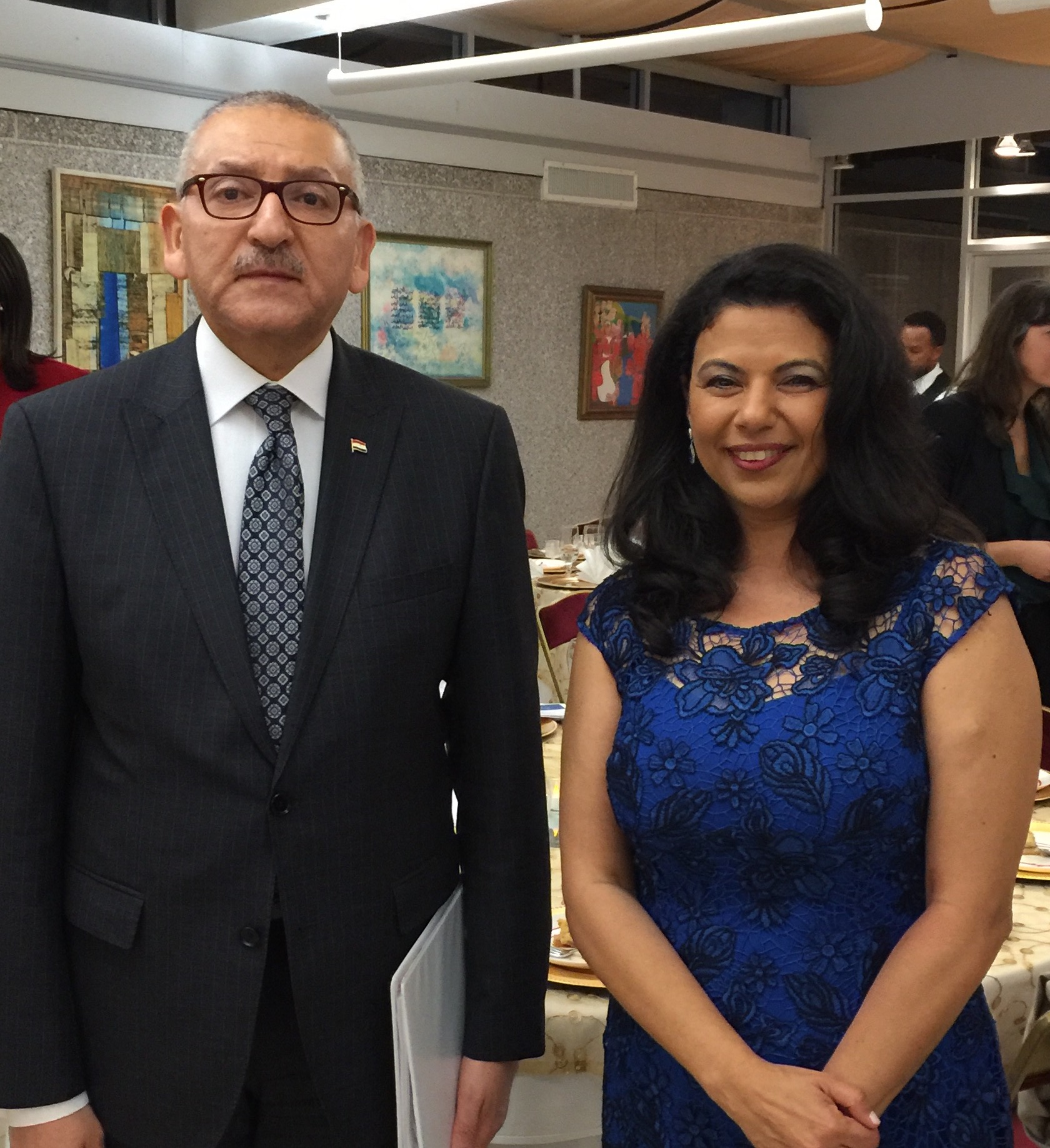
After the 1967 war, there was a sudden transition. Between her childhood and her adult life, a gap was marked by confusion, struggle and strife. “When we migrated to the United States, we had to begin our lives all over again. We didn’t know the language and didn’t know our way around, but we had to jump from one stage to the next until we were finally able to adapt to the environment,” Riad says.
The detour into development came by chance, Riad notes, after a visit to Egypt right after she finished university and had the chance to visit an orphanage. “It was at that moment that I asked myself: why am I sponsoring a child in Lebanon through my university, when there are these girls in front of me that I could help directly? And so the journey from then on began to develop and become more nuanced, because I learned more about how to help effectively, because it’s more than just about sending money, it’s much deeper than that.”
To help communities, there is a need for programs that have a deeper focus that can be measured, replicated and continually developed.
“If you think about your own child, you don’t give him money and say go educate yourself. The money must be channeled to programs that have a clear objective to teach the child under a wider vision to transform the child, working on the inner self of the child simultaneously,” she adds. “It’s a matter of dusting off the dust, so his true image as a child of God can be seen by himself and by others. Our philosophy is centered on restoring his image as a child of God.”
Bridging the Diaspora and Local Communities
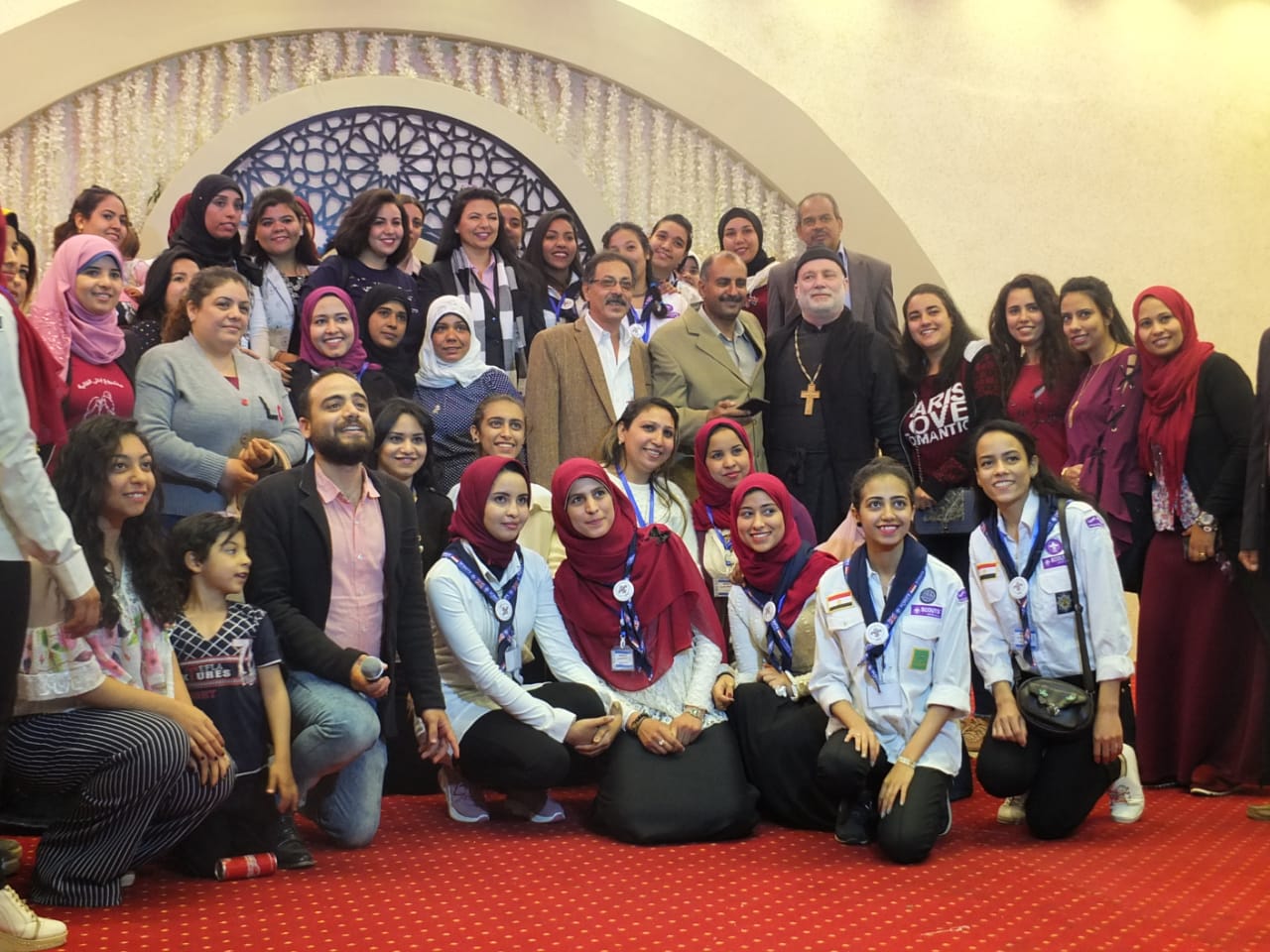
The heartbeats of Coptic Orphans as an organization are sustained by a unique model that merges between a network of volunteers in the US and the church community in Egypt, each playing its own role in the process.
“We paid great attention to how we can create a model that is sustainable, such as through mentoring and ensuring that there is always someone available to check on these girls. Our model is composed of dedicated volunteers that visit these children and act like the father figure that they had lost,” Riad says.
“It was at first through our family and friends network here in the US, but in Egypt we relied on the church’s infrastructure that had a volunteerism model, which was a perfect fit between the two.”
The model is also based on a continual process that reflects the environment and contexts of the communities they work with.
“One thing we learned very quickly is understanding the environment we operate in, because you cannot assume that since the children are in schools that they are really learning anything,” she adds.
“To achieve this, we guide our volunteering corps to understand the environment, and every quarter we do training on how to work with the children and the mother. The model essentially brings the best of both worlds: the passion and desire to help others in Egypt, and the management and administration of those in the US, which has helped many children come out and are able to compete for scholarships and become very successful professionals.”
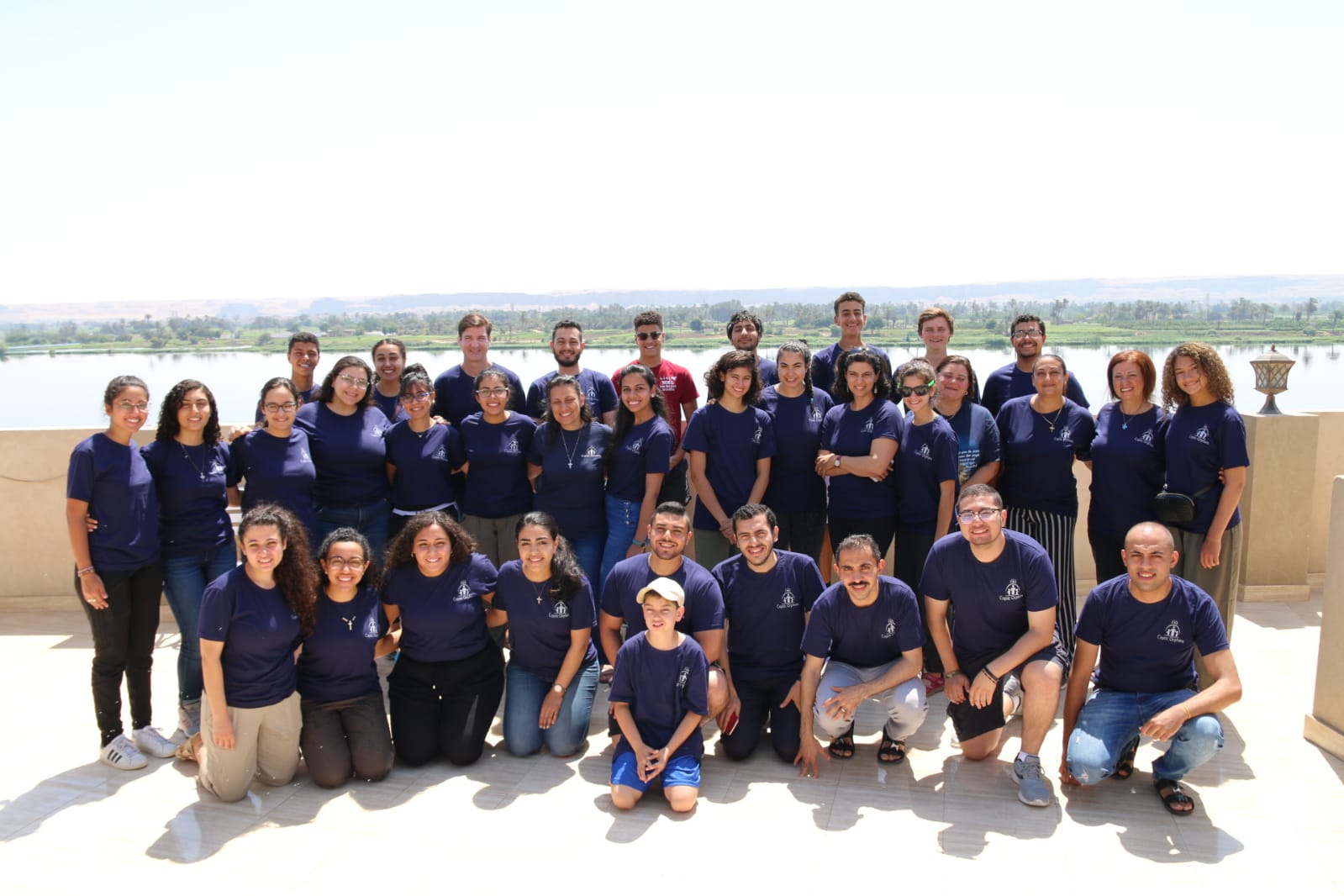
Creating an invisible bridge between Egyptians living abroad and Egypt, Coptic Orphans’ “The 21” program also provides an opportunity for young Egyptians in the West to connect with their heritage and translate their blessings into an act of service for others.
“It all began after a single trip to Egypt, which helped create Coptic Orphans. Imagine if every single Egyptian living abroad came to Egypt and was touched the way I was touched? And so we developed the entire programme around that concept, to help these Egyptians come to Egypt and teach English for three weeks. They eventually fall in love with the Egyptian children and they become so attached to the country,” she says.
While there is no clear data on the size of the Coptic diaspora, there are estimates that the biggest Coptic community abroad exists in the United States, with more than one million recorded in the late 2010s. Living abroad, it can be difficult for young Egyptians to be truly educated about their heritage and history, which is why the program also strikes a balance between two components: understanding one’s own heritage and the discovery of the people of Egypt.
“What’s remarkable is that growing up, you start to realize that you have little knowledge of Coptic history or of the Coptic narrative. The church has managed to keep us together as Copts living abroad, but there is to our history that we don’t know, such as how Pope Cyril IV of Alexandria is credited for establishing the first great printing house in Egypt, and was also the founder of native female education in Egypt, opening five modern schools that included two for females,” she narrates.
The 21 program first includes a full day workshop at Washington DC, where the members can learn and understand not only the Coptic history and narrative, but also its distinct theology. “For instance, are we Christian in the sea of Christianity, or is there a distinction and different flavor that we bring? After this, they go to Egypt and absorb this narrative, and see how the faith is reflected in the lives of their fellow Copts, especially in rural Egypt.”
Faith-driven and faith-centered
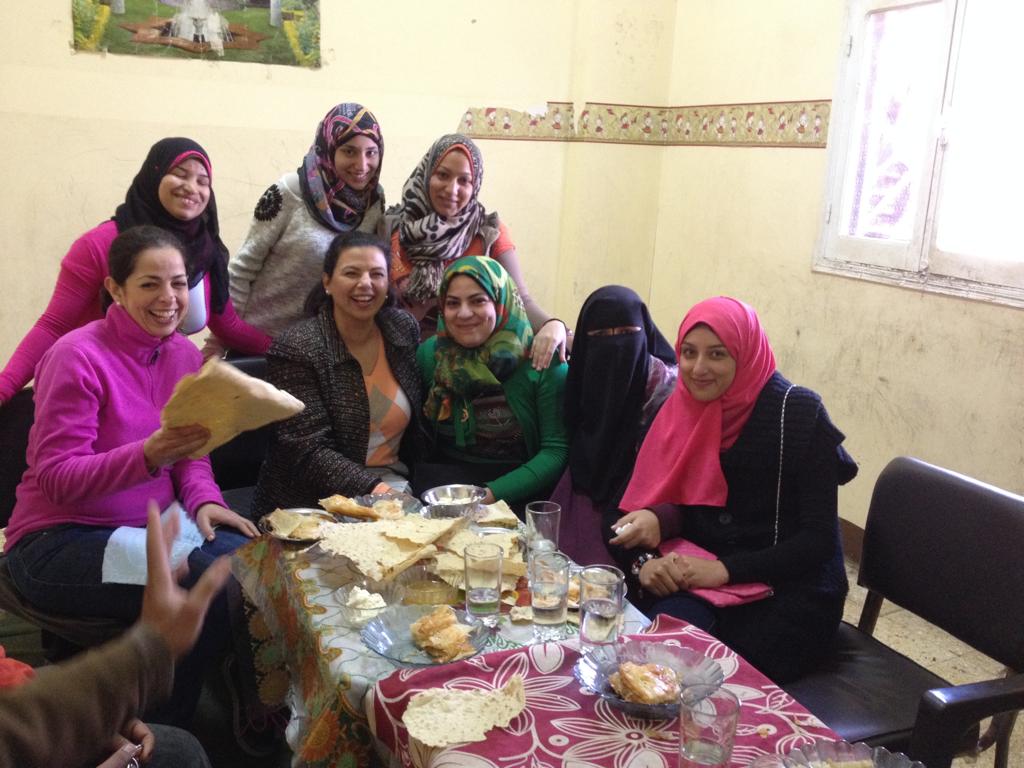
This faith is intertwined with the organization’s development programs. Its vision incorporates religion and culture with economic and social development, ensuring that communities do not solely progress materialistically, but also spiritually.
“Because we are faith-based, we follow the commands of Jesus Christ, where He tells us to love everyone and that we are the salt of the world and the light of the world, and so you never take the light and cover it with a basket. Hence, we can never be enclosed among ourselves – our love and our service has to go to everyone and we serve everyone, as we want all of Egypt to improve,” she says.
“Given that, we specifically made the Valuable Girl project for that purpose, to encourage tolerance among two groups, which is not to say that they are not tolerant of each other, it’s more because they were separated, and so the distrust was allowed to ferment. We realized that by bringing them together, they see each other as humans. You are letting it organically happen, and this is the beauty of Egyptians, because you cannot bring Egyptians together without having them getting along,” she adds.
The Valuable Girl project brings together Christians and Muslims in a safe space where they can communicate and express mutual respect. Young women in secondary school are trained to be “Big Sisters” and role models for their primary school “Little Sisters”, and these girls learn their skills one-on-one in workshops and in activities that tackle community problems.
The model of the mentor “Big Sister’ and the girls “Little Sisters” helped foster a stronger trust among the families in the community, as rather than directly sending the girls to school, the families feel a greater sense of ease that their daughters are guided and trained by a mentor, which encourages them to stay in school and avoid early marriage.
“There is a desire that burns in our hearts to expand. We want to reach as many girls as we can, and we operate through cycles. We are currently working with 2600 girls, and in the next cycle, we want to double that, reaching over 5000 girls,” Riad notes.
“Each time we finish a cycle, the model continues to live on its own independently, as some of the “Big “Sister” mentors continue to do it for free, because they felt valued and they saw how much they’re helping the young girls.”
In a highly interconnected world, where global contexts and challenges are now having greater effects on each country’s economy, the existence of Coptic Orphans is paramount to redefining the way governments and international institutions see diasporic communities, and equally how diasporic communities see themselves and their contribution to their home country.
“God blessed us with the privilege of being Egyptian and living abroad. And with so many blessings, comes so much responsibility. It’s our responsibility to give everything we can, to use our resources, our talents, our skills, and our connections for the sake of the people of Egypt,” Riad says.
“Whenever you see injustice, never leave it to happen. Give it all with good faith, you don’t need to create something huge, but you will just have to be determined and resilient, and then you can leave the rest to God.”


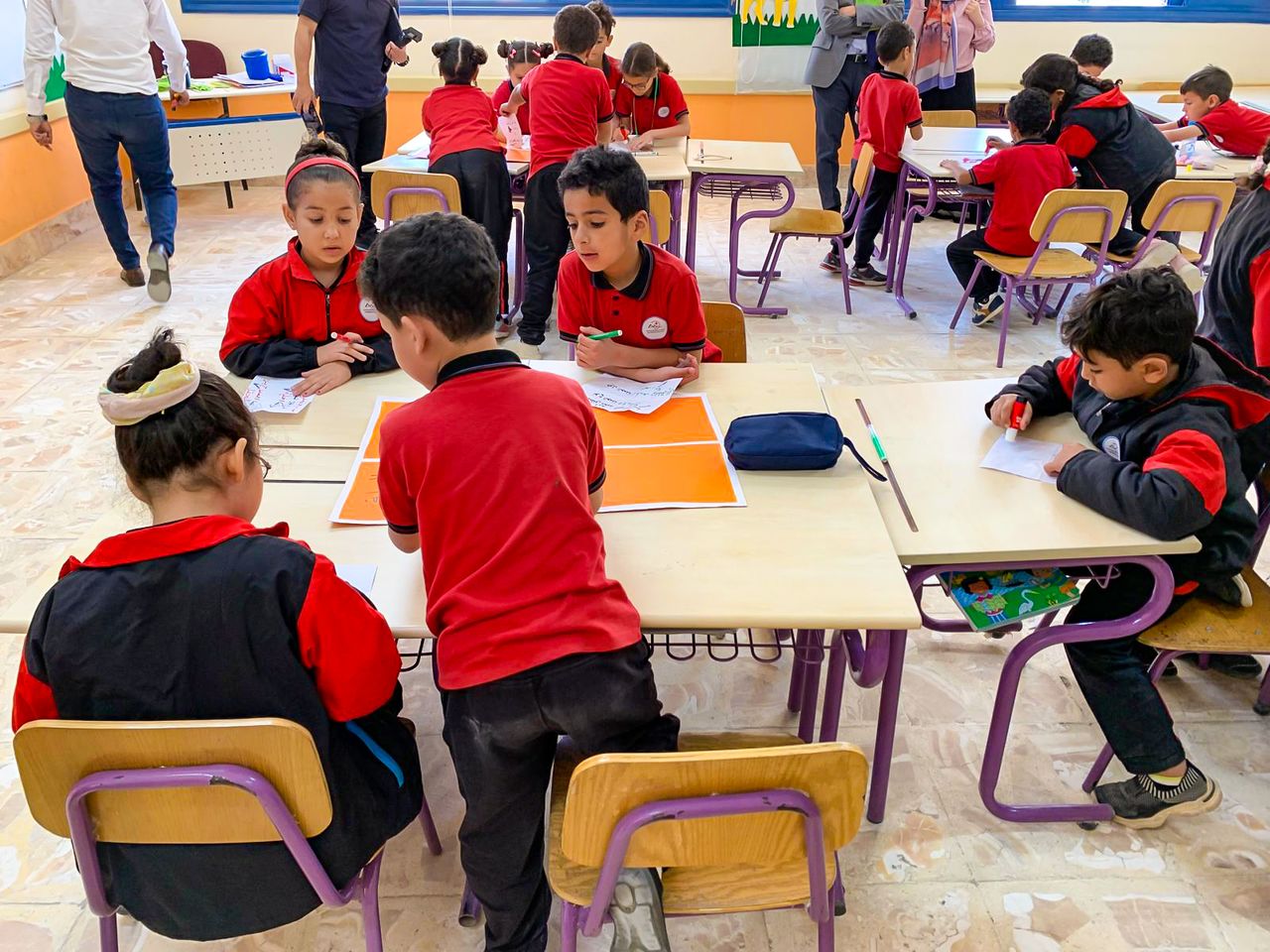
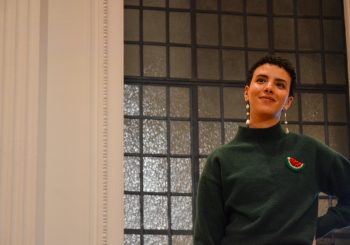
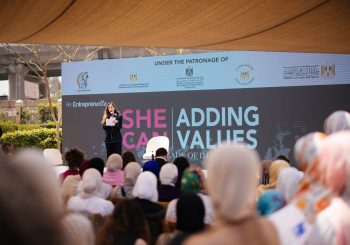

Comments (2)
[…] of states, and serves as an important ingredient to maintaining peace.As a Coptic Christian, Riad knows first-hand what it is like to be a minority in Egypt, which helped her shape the core vision of the […]
[…] a Coptic Christian, Riad knows first-hand what it i like to be a minority in Egypt, which helped her shape the core vision of the […]